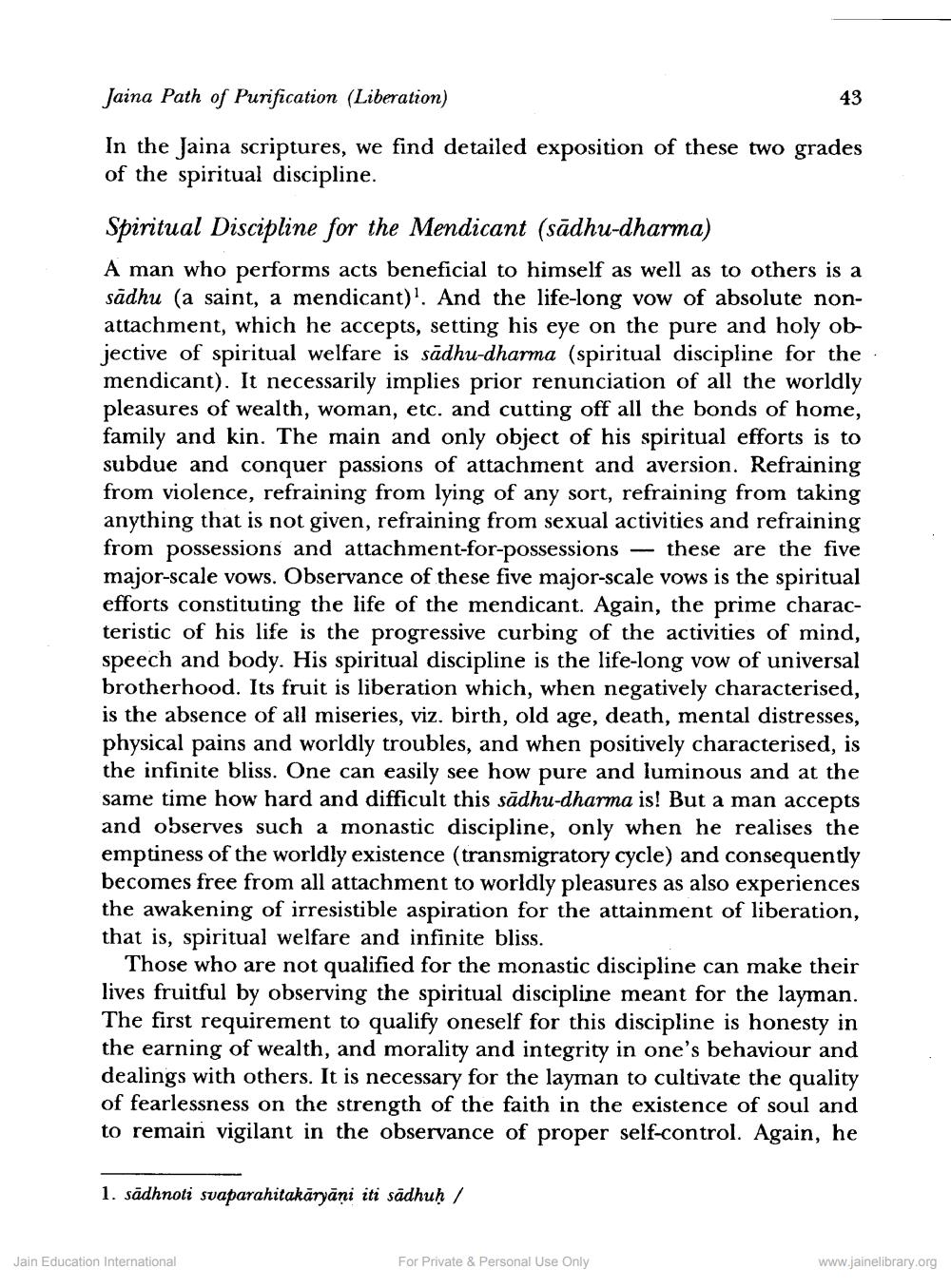________________
Jaina Path of Purification (Liberation)
43
In the Jaina scriptures, we find detailed exposition of these two grades of the spiritual discipline.
Spiritual Discipline for the Mendicant (sādhu-dharma) A man who performs acts beneficial to himself as well as to others is a sādhu (a saint, a mendicant)?. And the life-long vow of absolute nonattachment, which he accepts, setting his eye on the pure and holy ob jective of spiritual welfare is sadhu-dharma (spiritual discipline for the mendicant). It necessarily implies prior renunciation of all the worldly pleasures of wealth, woman, etc. and cutting off all the bonds of home, family and kin. The main and only object of his spiritual efforts is to subdue and conquer passions of attachment and aversion. Refraining from violence, refraining from lying of any sort, refraining from taking anything that is not given, refraining from sexual activities and refraining from possessions and attachment-for-possessions – these are the five major-scale vows. Observance of these five major-scale vows is the spiritual efforts constituting the life of the mendicant. Again, the prime characteristic of his life is the progressive curbing of the activities of mind, speech and body. His spiritual discipline is the life-long vow of universal brotherhood. Its fruit is liberation which, when negatively characterised, is the absence of all miseries, viz. birth, old age, death, mental distresses, physical pains and worldly troubles, and when positively characterised, is the infinite bliss. One can easily see how pure and luminous and at the same time how hard and difficult this sādhu-dharma is! But a man accepts and observes such a monastic discipline, only when he realises the emptiness of the worldly existence (transmigratory cycle) and consequently becomes free from all attachment to worldly pleasures as also experiences the awakening of irresistible aspiration for the attainment of liberation, that is, spiritual welfare and infinite bliss.
Those who are not qualified for the monastic discipline can make their lives fruitful by observing the spiritual discipline meant for the layman. The first requirement to qualify oneself for this discipline is honesty in the earning of wealth, and morality and integrity in one's behaviour and dealings with others. It is necessary for the layman to cultivate the quality of fearlessness on the strength of the faith in the existence of soul and to remain vigilant in the observance of proper self-control. Again, he
1. sādhnoti svaparahitakāryāni iti sādhuḥ /
Jain Education International
For Private & Personal Use Only
www.jainelibrary.org




